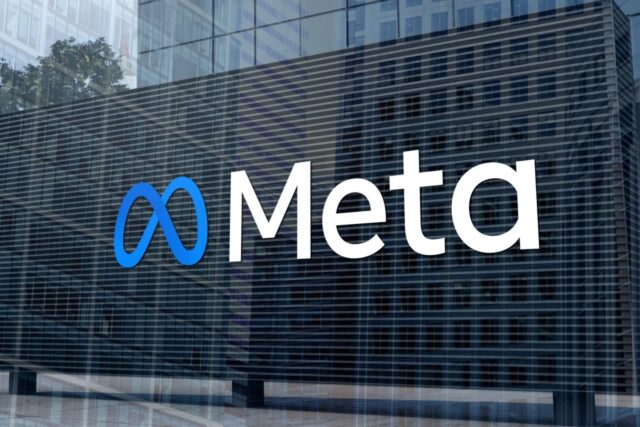
Meta Platforms Inc. (NASDAQ: META) is making a high-stakes bet on artificial intelligence, pouring billions into talent acquisition and infrastructure. Despite reports of unprecedented compensation packages and a fiercely competitive AI talent market, Meta’s stock has not only weathered this substantial spending but has continued to reach new highs. This aggressive strategy, personally spearheaded by CEO Mark Zuckerberg, highlights Meta’s commitment to becoming a leader in the AI space, and investors, for now, appear to be buying into that vision.
Key Takeaways:
- Meta is investing heavily in AI talent and infrastructure, with plans to spend up to $65 billion on AI infrastructure in 2025.
- The company has offered top AI researchers multi-million dollar annual compensation packages, reportedly reaching $10 million or more in some instances.
- Mark Zuckerberg is personally involved in recruiting top AI talent, including those from rivals like OpenAI, Google DeepMind, and Anthropic.
- Meta’s recent $14.3 billion investment in Scale AI for a 49% stake and the recruitment of its founder, Alexandr Wang, signal a strategic move to secure data labeling expertise and leadership for its new Superintelligence Labs.
- The market’s positive response to Meta’s AI pivot is driven by the potential for AI to enhance core advertising revenue, develop new revenue streams, and position Meta for long-term growth in the rapidly expanding AI sector.
- While costly, these investments are seen as necessary for Meta to compete effectively in the AI race, with the potential for massive returns if its AI initiatives succeed.
- Meta’s strong financial foundation, particularly its robust advertising business, provides the capital runway for these ambitious AI investments.
The technology industry is witnessing an intense “AI talent war,” with major players like Meta, OpenAI, Google, and Microsoft vying for a limited pool of top-tier AI researchers and engineers. This fierce competition has driven up compensation to unprecedented levels, with reports of Meta offering eight-figure annual salaries and substantial signing bonuses, some rumored to be as high as $100 million for select individuals. Mark Zuckerberg himself has engaged in direct outreach, emailing job offers to highly sought-after candidates, underscoring the urgency of Meta’s recruitment efforts.
The Drive for Superintelligence
At the heart of Meta’s AI talent push is Zuckerberg’s stated ambition to develop “personal superintelligence for everyone.” This vision is central to the company’s long-term strategy, aiming to create AI that surpasses human intelligence and can power a new era of digital experiences across Meta’s vast ecosystem of platforms, including Facebook, Instagram, and WhatsApp. To accelerate this goal, Meta recently announced the formation of Meta Superintelligence Labs (MSL), a new group that will consolidate its existing AI model development and research teams. Alexandr Wang, the 28-year-old founder and former CEO of AI training data startup Scale AI, has been appointed to lead MSL as Meta’s Chief AI Officer.
Meta’s investment in Scale AI is a significant component of its AI strategy. The company committed $14.3 billion for a 49% stake in Scale AI, securing critical data labeling expertise and bringing Wang’s leadership in-house. Scale AI provides curated and labeled datasets essential for training advanced AI models, offering a vital advantage in an industry where high-quality data is paramount. This strategic partnership aims to enhance Meta’s ability to train its large language models, like the Llama series, and accelerate the development of its AI capabilities.
Poaching from Rivals
The recruitment drive extends to poaching top talent directly from competitors. Meta has successfully lured researchers from OpenAI, Google DeepMind, and Anthropic. Notable hires include former Google DeepMind researchers Jack Rae and Pei Sun, and OpenAI researchers Trapit Bansal and Hongyu Ren. These individuals bring invaluable experience in developing large foundation models and contributing to high-profile AI projects. While these talent acquisitions come at a significant financial cost, Meta appears willing to bear it, viewing these experts as crucial to its AI future. OpenAI CEO Sam Altman has publicly commented on Meta’s aggressive recruitment tactics, citing the substantial offers made to his researchers. Meta’s CTO, Andrew Bosworth, has acknowledged the intense market for AI talent, describing the compensation levels as “unprecedented.”
Why the Market Remains Confident
Despite the massive expenditures associated with this AI talent push—Meta plans to spend $60 billion to $65 billion on AI infrastructure in 2025 alone—Meta’s stock has shown strong performance, reaching new all-time highs. Several factors contribute to this investor confidence:
- Potential for AI to Enhance Core Business: Investors see AI as a powerful catalyst for Meta’s lucrative advertising business. AI-driven tools can improve ad targeting, streamline ad creation, and potentially increase ad revenue margins by reducing reliance on third-party agencies. Personalized content recommendations and more engaging user experiences, powered by advanced AI, could also drive higher user engagement across Meta’s platforms, further strengthening its advertising ecosystem. With over a billion monthly active users leveraging Meta’s AI across its applications, the potential for incremental revenue from enhanced advertising capabilities is substantial.
- Long-Term Vision for New Revenue Streams: Beyond advertising, Meta’s AI investments are aimed at creating entirely new revenue streams. The development of sophisticated AI agents, personal superintelligence, and advancements in the metaverse, all underpinned by robust AI capabilities, present significant long-term growth opportunities. Analysts estimate that AI-driven revenue opportunities for Meta could reach hundreds of billions, even trillions, by 2035, spanning enterprise AI services and immersive metaverse experiences.
- Strategic Positioning and Infrastructure Advantage: Meta’s deep pockets and existing infrastructure provide a significant competitive advantage in the AI race. The company can invest heavily in custom AI chips, like its Athena processor, and build out the necessary data center capacity to support its ambitious AI models. This control over both hardware and software allows Meta to optimize its AI development and deployment, potentially leading to greater efficiency and faster innovation compared to rivals who might rely more on external providers.
- Shareholder Returns and Financial Stability: While Reality Labs, Meta’s metaverse division, continues to incur significant operating losses (reporting a $9.1 billion operating loss in Q1 2025), Meta’s core advertising business remains a robust cash cow. This financial stability provides the necessary runway for Meta to pursue high-risk, high-reward AI initiatives without immediately jeopardizing its overall profitability. The company’s consistent ad revenue growth and strong user engagement metrics offer reassurance to investors that its foundational business remains solid.
- The Necessity of Investment: The current landscape of the technology industry dictates that companies must invest heavily in AI to remain competitive. Not investing in top AI talent and infrastructure would be a greater risk, potentially leading to Meta falling behind rivals in the rapidly evolving AI space. Investors understand that these are not merely discretionary expenses but critical strategic investments for the company’s future relevance and growth.
Challenges and Outlook
Despite the positive market sentiment, Meta’s AI push is not without its challenges. The extremely high cost of AI talent can create internal tensions and financial pressures. There are also execution risks associated with integrating new talent and developing cutting-edge AI technologies at scale. While Meta’s open-source strategy with its Llama models has gained traction, the company still faces the challenge of translating its research breakthroughs into commercially successful products that can rival market leaders like ChatGPT.
Meta’s AI talent acquisition strategy, while costly, is viewed by investors as a necessary and potentially lucrative long-term bet. The company’s financial strength, combined with its clear vision for AI integration across its platforms and the potential for significant future revenue, has so far justified the substantial investment in the eyes of the market. The stock’s performance reflects a belief that Meta is positioning itself to be a frontrunner in the AI-powered future.
FAQ Section
Q1: Why is Meta spending so much on AI talent and infrastructure?
A1: Meta is spending heavily on AI talent and infrastructure because it views artificial intelligence as the next major technological frontier and crucial for its future growth. The company aims to develop “personal superintelligence for everyone” and integrate advanced AI capabilities across its products, including social media platforms, advertising tools, and metaverse initiatives. To achieve this, it needs the brightest minds in AI and the computational power to train complex models.
Q2: How much is Meta reportedly paying its top AI researchers?
A2: Meta is reportedly offering exceptionally high compensation packages to top AI researchers, with some annual salaries reaching $10 million or more. There have also been rumors of substantial signing bonuses, with some reports citing figures as high as $100 million for highly sought-after individuals, although Meta’s CTO has downplayed these specific bonus figures.
Q3: What is Meta’s “Superintelligence Labs”?
A3: Meta Superintelligence Labs (MSL) is a newly formed group within Meta that consolidates the company’s existing AI model development and fundamental AI research teams. It is led by Alexandr Wang, the founder of Scale AI, and is tasked with accelerating Meta’s progress toward developing superintelligent AI.
Q4: How does Meta’s investment in Scale AI fit into its AI strategy?
A4: Meta’s $14.3 billion investment in Scale AI, giving Meta a 49% stake, is strategic because Scale AI specializes in providing high-quality, labeled datasets for training AI models. This investment secures a crucial resource for Meta’s AI development, ensures access to Scale AI’s expertise, and brings its founder, Alexandr Wang, into a leadership role within Meta’s AI division.
Q5: Has Meta’s high spending on AI negatively impacted its stock price?
A5: No, Meta’s high spending on AI has not negatively impacted its stock price. In fact, the stock has recently reached new highs. Investors appear to be confident in Meta’s long-term AI strategy, believing that these significant investments are necessary for the company to secure a leading position in the AI market and potentially generate substantial returns in the future.
Q6: What are the potential benefits of Meta’s AI investment for its core advertising business?
A6: Meta expects its AI investments to significantly enhance its core advertising business by improving ad targeting and relevance, streamlining ad creation processes for businesses, and potentially reducing costs by offering end-to-end AI-driven advertising solutions. These improvements aim to increase engagement and attract more advertisers to Meta’s platforms.










